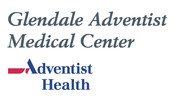|
|

|
« Back
Hand Infection in Fish Handlers
|
Posted on: 08/26/2010
|
Every job has its ups and downs. Men and women who handle fish (fresh or frozen) with their bare hands are at risk for hand infections. Fish, shrimp, and other seafood products have sharp fins or claws that can cause small cuts in the fingers or palms of the hand. The tiny opening is big enough for bacteria to enter and cause damage to the tendons and tendon sheaths (covering around tendons).
Usually, the type of bacteria present is mycobacterium marinum. Exposure to this type of bacteria (leading to hand infection) is common with exposure to fish. A less common (rare) bacterium among fish handlers that can also cause infection and even death of the affected soft tissues has been reported. The authors of this article describe two cases of hand infection caused by mycobacterium abscessus.
Undiagnosed and untreated, this type of hand infection can become chronic and even cause the loss of fingers or hand. That's why this report is so important. Fish handlers and the physicians and surgeons who treat them must be aware of these deadly bacteria. Early diagnosis and aggressive (surgical) treatment may be needed to prevent the rapid spread of infection and damage to the tissues.
Symptoms of hand infection due to mycobacterium abscessus are very similar to symptoms caused by the more common mycobacterium marinum. Symptoms include pain, swelling, and redness of the skin over the area affected. Fish handlers often ignore the symptoms. They may keep on working for months before seeking medical help. They may not be able to identify a single traumatic event that could have caused the problem. And they are in good health otherwise.
Without a history of trauma and with an otherwise healthy individual, misdiagnosis or delayed diagnosis is easy to occur, thus complicating matters. Whenever hand infections develop in fish handlers, the standard treatment is antibiotics. Using the right antibiotic specific to the underlying bacteria is important. Sometimes the antibiotic chosen just kills a portion of the bacteria. The patient feels better and symptoms improve but don't go away. They go back to work only to develop worse symptoms days to weeks later.
Eventually, the right diagnosis is made but the delay could mean damage to the flexor tendon system of the hand. Excess scar tissue in the finger can extend into the hand. The pulley system that allows the tendons to glide and slide while moving the fingers into a flexed (bent) position get stuck. The final result can be a loss of hand function that could mean the end of a job for a fish handler.
What can be done to prevent such devastating results? Awareness is the key here. Physicians and surgeons must know about the possibility of this rare infection. Before assuming the problem is mycobacterium marinum, the possibility of mycobacterium abscessus should be considered as the real cause of the initial symptoms. This is especially true whenever a fish handler comes in with complaints of hand or finger symptoms.
Early surgery to open up the hand, drains the infection, clean the area out, and provide the most effective antibiotics are essential to a good outcome for these patients. Hand therapy after surgery is needed to prevent stiffness and assure smooth return of full finger motion and hand function. Antibiotic treatment may continue for up to a year (or longer). No one really knows how long medication is needed to prevent a relapse. Future studies may address this question.
|
References:
Gavin C. W. Kang, MD, et al. Mycobacterium abscessus Hand Infections in Immunocompetent Fish Handlers: Case Report. In Journal of Hand Surgery. July 2010. Vol. 35-A. No. 7. Pp. 1142-1145.
|
|
|
« Back
|
|
|
|
*Disclaimer:*The information contained herein is compiled from a variety of sources. It may not be complete or timely. It does not cover all diseases, physical conditions, ailments or treatments. The information should NOT be used in place of visit with your healthcare provider, nor should you disregard the advice of your health care provider because of any information you read in this topic. |
 | All content provided by eORTHOPOD® is a registered trademark of Mosaic Medical Group, L.L.C.. Content is the sole property of Mosaic Medical Group, LLC and used herein by permission. |
|
